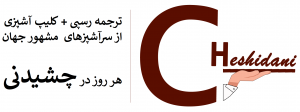patsylarocque53
@patsylarocque53
پروفایل
ثبتنام شده: 4 سال، 2 ماه پیش
What Makes One Language Harder or Easier Than One other?
What makes one language harder or simpler to learn than one other? Sadly, there is no one easy answer. There are some languages which have a number of characteristics that make them comparatively tough to learn. But it relies upon much more on what languages you already know, particularly your native language, the one (or ones) you grew up speaking.
Your native language The language you were surrounded with as you grew up (or languages, for these lucky enough to develop up speaking more than one language) is the most influential factor on the way you learn other languages. Languages that share a few of the qualities and characteristics of your native English will be simpler to learn. Languages that have very little in widespread with your native English might be much harder. Most languages will fall someplace within the middle.
This goes both ways. Though it is a stretch to say that English is harder than Chinese, it is safe to say the native Chinese speaker probably has nearly as hard a time to be taught English because the native English speaker has when learning Chinese. In case you are finding out Chinese right now, that's probably little consolation to you.
Related languages Learning a language carefully related to your native language, or another that you simply already speak, is way easier than learning a totally alien one. Related languages share many characteristics and this tends to make them simpler to be taught as there are less new concepts to deal with.
Since English is a Germanic language, Dutch, German and the Scandinavian languages (Danish, Norwegian and Swedish) are all closely related and thus, easier to study than an unrelated tongue. Another languages associated in some way to English are Spanish, Italian and French, the more distant Irish and Welsh and even Russian, Greek, Hindi and Urdu, Farsi (of Iran) and Pashto (of Afghanistan).
English shares no ancestry with languages like Arabic, Korean, Japanese and Chinese, all languages considered hard by English standards.
Comparable grammar One of those characteristics which can be typically shared between associated languages. In Swedish, word order and verb conjugation is mercifully similar to English which makes learning it much simpler than say German, which has a notoriously more complex word order and verb conjugation. Although both languages are associated to English, German kept it's more complex grammar, where English and Swedish have largely dropped it.
The Romance languages (French, Spanish, Italian, Portuguese and a number of different languages) are famous for sharing many characteristics. It isn't surprising since all of them developed from Latin. It is extremely frequent for someone who learns one among these languages to go on and be taught one or two others. They're so comparable at occasions that it appears that you would be able to learn the others at a reduced value in effort.
Commonalities in grammar don't just occur in related languages. Very different ones can share related qualities as well. English and Chinese even have relatedities in their grammar, which partly makes up for a number of the other difficulties with Chinese.
Cognates and borrowed vocabulary. This is one of those traits that make the Romance languages so similar. And in this, additionally they share with English. The Romance languages all have the huge majority of their vocabulary from Latin. English has borrowed a lot of its vocabulary directly from Latin and what it did not get there, it just borrowed from French. There is a gigantic amount of French vocabulary in English. One other reason that Spanish, French and Italian are
considered simpler than other languages.
There are always borrowings of vocabulary between languages, and never always between associated languages. There is a shocking amount of English vocabulary in Japanese. It's a little disguised by Japanese pronunciation, but it's to discover it.
Sounds Obviously, languages sound different. Although all people use basically the same sounds, there always seems to be some sounds in different languages that we just don't have in our native language. Some are strange or troublesome to articulate. Some could be quite subtle. A Spanish 'o' is not precisely the identical as an English 'o.' After which there are some vowel sounds in French, for example, that just don't exist in English. While a French 'r' could be very completely different from English, a Chinese 'r' is
truly very similar.
It will probably take a while to get comfortable with these new sounds, although I think that faking it is acceptable till you may get a better deal with on them. Many individuals do not put enough effort into this facet of learning and this makes some languages appear harder to learn than they should be.
Tones A number of languages use tones, a rising or falling pitch when a word is pronounced. This might be very subtle and troublesome for someone who has never used tones before. This is likely one of the predominant reasons Chinese is hard for native English speakers.
Chinese is not the only language to use tones, and never all of them are from exotic far-off lands. Swedish makes use of tones, although it just isn't almost as complicated or tough as Chinese tones. This is the kind of thing that can only really be realized by listening to native speakers.
By the way, there are examples of tone use in English however they're very few, usually used only in particular situations, and aren't part of the pronunciation of particular person words. For instance, in American English it's frequent to lift the tone of our voice on the finish of a question. It's not quite the same thing, but for those who think about it that way, it might make a tone language a little less intimidating.
The writing system Some languages use a different script or writing system and this can have a major impact on whether a language is hard to study or not. Many European languages use the same script as English but additionally embrace just a few other symbols not in English to signify sounds particular to that language (think of the 'o' with a line by it in Norwegian, or the 'n' with a little squiggly over it in Spanish). These are usually not difficult to learn.
But some languages go farther and have a special alphabet altogether. Greek, Hindi, Russian and most of the different Slavic languages of Eastern Europe all use a distinct script. This adds to the advancedity when learning a language. Some languages, like Hebrew and Arabic, are also written from right to left, additional adding difficulty.
When you have any queries relating to wherever and how to make use of Online dutch course, you can call us from the web page.
وب سایت: https://masterclassdutch.com/online-dutch-courses/
انجمن ها
موضوع های ارسال شده: 0
پاسخ های ارسال شده: 0
نقش در انجمن: مشارکت کننده
محبوب ترین دسته ها
علاقه مندی های من
محبوب
شکارچی استایل
اخبار داغ
برنامه ها
طرز تهیه خمیر یوفکا؛ فیلو یا باقلوا (با نحوه بسته بندی...
تهیه کردن خمیر یوفکا خانگی دارای مراحلی ست که نیاز به اشتیاق و صبر فراوان دارد؛ اما گر صبر کنی ز غوره حلوا سازی...
بیشترین دیدگاه
طرز تهیه کیک ناپلئونی
کیک ناپلئونی روسی
(NAPOLEON CAKE)
مواد لازم:
برای لایه ها
تخم مرغ بزرگ ۲ عدد
نمک ۱/۴ ق چ
آب سرد ۲۰۰ میلی لیتر
سرکه سفید ۱ ق غ
کره سرد ۴۰۰...
اخبار داغ
باید خواند شود
غذاهای رژیمی
- All
- آنا اولسون
- اصول پایه آشپزی
- الا (آشپزی خانگی)
- انواع پنکیک
- انواع دسر
- انواع رسپی ها
- انواع وعده ها
- بایرون تالبوت (ساده اما خوشمزه)
- تاتیانا
- جما استفورد
- جما ویلسون (جما کاپ کیک)
- دنی اسپیز (سالم و لذیذ)
- رژیمی و لوکرب
- رسپی ملل
- رسپی های ترکیه
- رول و کلوچه
- سالاد ها
- سرآشپزها
- شیرین جات
- کوکی و بیسکوئیت
- کیک و مافین
- گیاهی و سالم
- ملل دیگر
- مواد پایه
- میان وعده (اسنک)
- ناتاشا (آشپزخانه من)
- نان جات
- نان ها
- نوشیدنی ها
- وعده اصلی (ناهار؛ شام)
- وعده جانبی (صبحانه؛ عصرانه)
بیشتر
وعده های سالم و گیاهی
- All
- آنا اولسون
- اصول پایه آشپزی
- الا (آشپزی خانگی)
- انواع پنکیک
- انواع دسر
- انواع رسپی ها
- انواع وعده ها
- بایرون تالبوت (ساده اما خوشمزه)
- تاتیانا
- جما استفورد
- جما ویلسون (جما کاپ کیک)
- دنی اسپیز (سالم و لذیذ)
- رژیمی و لوکرب
- رسپی ملل
- رسپی های ترکیه
- رول و کلوچه
- سالاد ها
- سرآشپزها
- شیرین جات
- کوکی و بیسکوئیت
- کیک و مافین
- گیاهی و سالم
- ملل دیگر
- مواد پایه
- میان وعده (اسنک)
- ناتاشا (آشپزخانه من)
- نان جات
- نان ها
- نوشیدنی ها
- وعده اصلی (ناهار؛ شام)
- وعده جانبی (صبحانه؛ عصرانه)
بیشتر







































